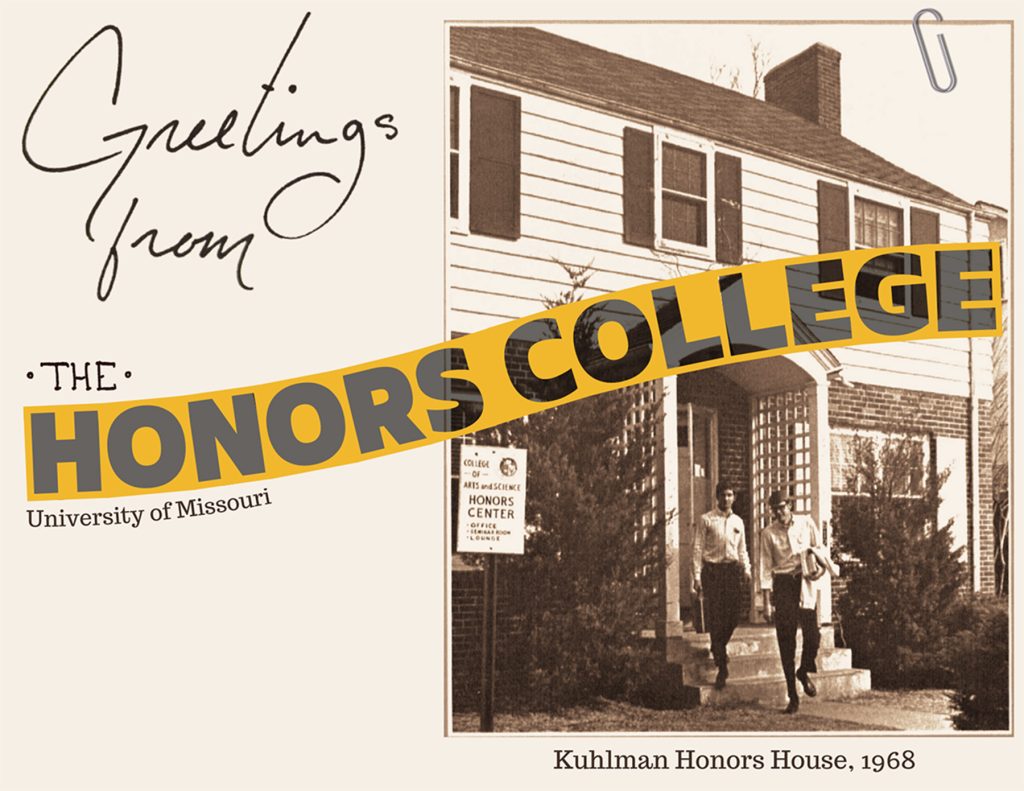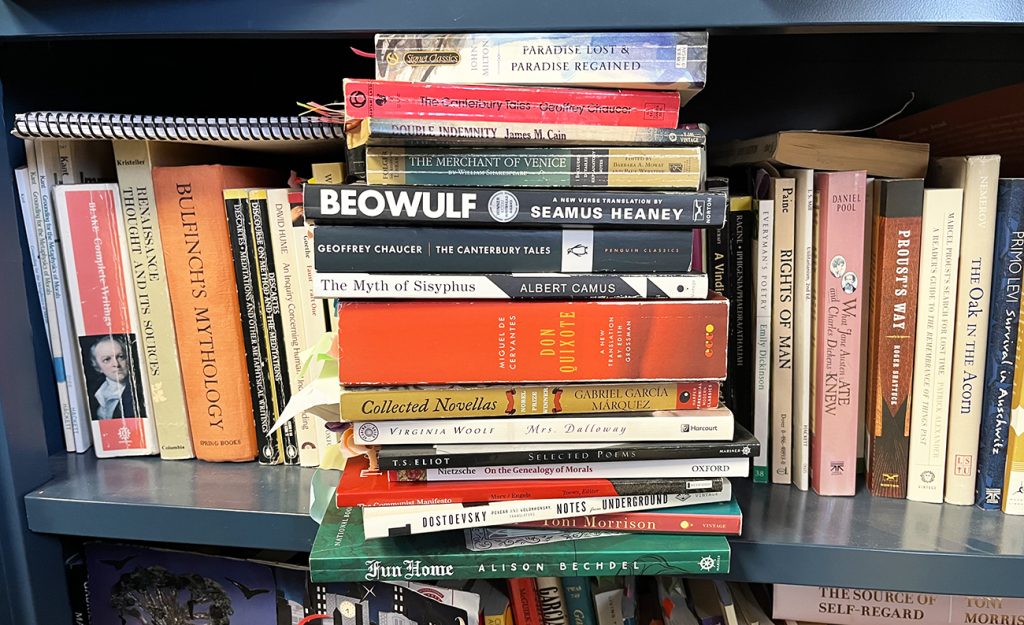
The University of Missouri Honors College was established in 1959 by a committee of faculty who were interested in bringing together “superior students and highly able faculty” for the purposes of enhancing the educational opportunities at Mizzou. Their goal – the development of a broadly interdisciplinary curriculum of study for MU’s most accomplished students – was derived from the work already underway in a thriving “Humanities Series” of courses that were focused on great books and great ideas. The Honors College also supported the development of discipline-based Honors programs of study within individual departments. It has grown from there to include not only a distinguished academic program, but also extensive co-curricular and living-learning facets.
Over the years, the Honors College has had a total of 13 directors:
- Rod McGrew (1959-64)
- William “Mac” Jones (1964-66)
- Richard Renner (1966-69)
- Bill Bondeson (1969-72)
- James Holleran (acting, 1972-73)
- Paul Nelson (1973-75)
- George Fasel (1975-77, 1978-79)
- Ted Tarkow (1977-78, 1979-83)
- Edwin Kaiser (1983-91)
- Stuart Palonsky (1991-2011)
- Nancy West (interim, 2011-15)
- J.D. Bowers (2015-21)
- Catherine Rymph (2021-present)
Rymph became the inaugural dean of the Honors College in 2022 after serving in an interim director role for a year.
The first true “home” of the Honors College was at 612 Kuhlman Court, which was once a street south of Ellis Library with 10 to 12 formerly private homes that Mizzou purchased over time. At Kuhlman Court, there was, among other things: A lounge on the first floor (where Honors students and faculty could purchase coffee for 5 cents a cup) and a seminar/classroom on the second floor. The classroom was occupied from 8 a.m. to 3 p.m. nearly every day. The lounge allowed students to drop in and out whenever they wanted. It was kept open evenings during Finals Week, and student groups could use it on evenings/weekends throughout the academic year.
After Kuhlman Court, the Honors College was housed in a several different locations, including Connelly House, until 1988, when it was moved into Lowry Hall, its present location. Lowry Hall, located on Lowry Mall, is most distinguished by the sculpture on the southeast corner of the building, Yielding Spire.
For most of its early existence, the Honors College existed within the framework of the College of Arts and Science. It was not until the late 1980s that it truly took on its own identity, marked by its transfer to the Office of the Provost in 1988.
From the outset, the Honors College offered courses that were topically and structurally built around career exploration seminars, discussion groups, seminars, colloquiums, independent study, preceptorships, and departmental-based Honors courses. In the late 2000s, the Honors College added the Tutorial offerings.
The college now has more than 13,500 graduates who have benefited from their engagement in the college’s courses and programming. Many of those graduates have gone onto distinguished careers in law, politics, medicine, non-profits, and corporations. They have also gone onto prestigious graduate programs both at Mizzou and at other institutions.
